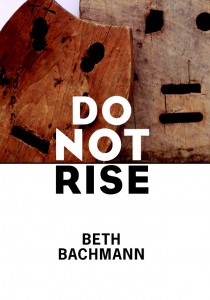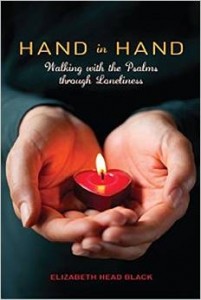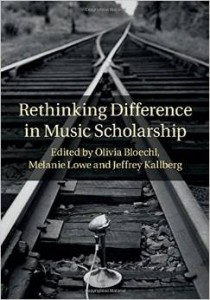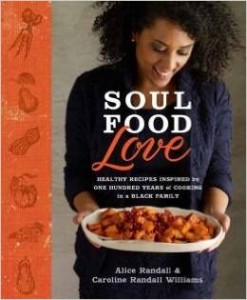 Do Not Rise (2015, University of Pittsburgh Press) by Beth Bachmann, writer-in-residence in English
Do Not Rise (2015, University of Pittsburgh Press) by Beth Bachmann, writer-in-residence in English
Do Not Rise is a book of poetry about post-traumatic stress, memory, failure to forget, and repetition as an act of remembering in a state of war. It also is an invocation to stand down, a dare to disobey, and a question of the terms of surrender.
 Hand in Hand: Walking with the Psalms through Loneliness (2015, Bright Sky Press) by Elizabeth Head Black, BA’88
Hand in Hand: Walking with the Psalms through Loneliness (2015, Bright Sky Press) by Elizabeth Head Black, BA’88
Somewhere along the road of life, at one time or another, we all feel lonely. Hand in Hand is a personal devotional resource written for any person who has lived long enough to move away from home, marry or divorce, be transferred in a job, send children to college, experience the death of a loved one, or outlive their peer group.
 ‘I Hear America Singing’: Folk Music and National Identity (2014, Temple University Press) by Rachel Donaldson, MA’06, PhD’11
‘I Hear America Singing’: Folk Music and National Identity (2014, Temple University Press) by Rachel Donaldson, MA’06, PhD’11
Donaldson traces the vibrant history of the folk music revival from its origins in the 1930s through its end in the late 1960s. She investigates the relationship between the revival and concepts of nationalism, showing how key figures in the revival—including Pete Seeger and Alan Lomax—used songs to influence the ways in which Americans understood the values, culture and people of their own nation.
 Rethinking Difference in Music Scholarship (2015, Cambridge University Press) edited by Melanie Lowe, associate professor of musicology, Olivia Bloechl and Jeffrey Kallberg
Rethinking Difference in Music Scholarship (2015, Cambridge University Press) edited by Melanie Lowe, associate professor of musicology, Olivia Bloechl and Jeffrey Kallberg
Two decades after the publication of several landmark scholarly collections on music and difference, musicology has largely accepted difference-based scholarship. This collection of essays by distinguished contributors is a major contribution to this field, covering the key issues and offering an array of individual case studies and methodologies.
Soul Food Love: Healthy Recipes Inspired by One Hundred Years of Cooking in a Black Family (2015, Clarkson Potter) by Alice Randall, writer-in-residence in African American and Diaspora Studies, and Caroline Randall Williams
Love: Healthy Recipes Inspired by One Hundred Years of Cooking in a Black Family (2015, Clarkson Potter) by Alice Randall, writer-in-residence in African American and Diaspora Studies, and Caroline Randall Williams
In 2012 best-selling author Randall penned an op-ed in The New York Times chronicling her quest to be “the last fat black woman” in her family. She turned to her daughter, Caroline, for help. Together they overhauled the way they cook and eat, translating recipes and traditions handed down by generations into easy, affordable, and healthful—yet still indulgent—dishes.